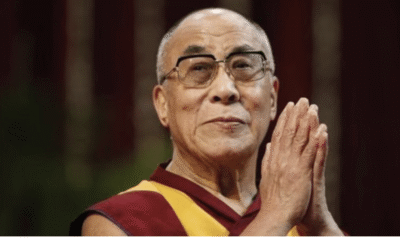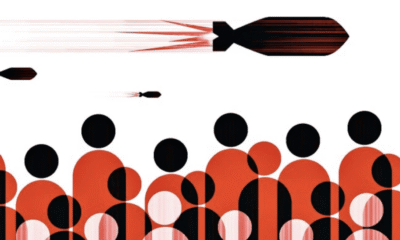|
Getting your Trinity Audio player ready...
|
Courtesy – Times of India
http://blogs.timesofindia.indiatimes.com/toi-edit-page/three-years-down-the-line-from-2014-lok-sabha-elections-bjp-has-emerged-as-the-only-true-pan-national-party/
BJP is riding high on its recent successes, both in elections to state assemblies in February-March 2017 and in by-elections held this week to 10 assembly seats in eight states. Generally speaking, except for the three states of Bihar, Delhi and Punjab, BJP has been on a winning spree in almost all elections it has faced in the last three years. At a time when party leaders gather for the national executive at Bhubaneswar, exactly three years after the resounding victory in Lok Sabha elections, there is a palpable ‘feel good’ factor among leaders and cadres across the country.
In terms of governance the Modi government has been able to win laurels from people cutting across demographies. One of the significant achievements for the party under Prime Minister Narendra Modi is a conspicuous change in the character of its support base. BJP has been able unshackle itself from the long-time stereotype image of a Brahmin, Bania and urban middle class party. Its support base has expanded significantly into poorer sections of society, thanks to poor-friendly policies and programmes of Modi.
Three years down the line, BJP has emerged as the only truly pan-Indian party in terms not only of electoral successes but also social demographics.
In a country long identified with corruption – growthlessness, violence, caste and communal divisions, politics of opportunism and opacity – Modi symbolised hope. It is the politics of hope that propelled people towards Modi. People see in him a leader who can usher in a fundamental transformation not only in the lives of individual Indians but in the life of the nation as well.
The average Indian is honest, hardworking, patriotic and socially conscious. If he has become otherwise, it is because of the flawed national culture perpetuated by selfish political leadership in all these years. In the last three years the PM has been able to convince the people about his conviction and also capacity to undo that culture. In his own inimitable style, he has connected directly with the people and made them partners in his grand national restructuring project.
The successes that BJP secured in the last three years are partly also due to the excellent team work and organisational hierarchy that party president Amit Shah has built up assiduously, resulting in exponential growth of the party membership.
However, these successes have brought important challenges as well. BJP has to now reinvent itself to suit the changing grassroots character of its support base. Large sections of the masses that identify with Modi need to be won over to the party side. That calls for an organisational overhaul. A voter in a remote village connecting with Modi should also be able to connect with the local BJP leadership. In other words BJP has to think about providing representation to the newly won over sections of the society in its organisational and ideological establishment.
Electoral successes in different states have brought BJP to power in 16 out of 31 states. BJP has 13 chief ministers and one deputy CM. The challenge before the party is to ensure that governments in all these states replicate the change that the Modi government represents. To put it differently, whether it is a Trivendra in Uttarakhand or a Birendra in Manipur or a Yogindra in UP – all have to follow Narendra in Delhi. Leaders in all these states should share and implement the vision of PM Modi.
In the fight against pseudo-liberalism that has become synonymous with decrying everything that is truly Indian, we must not allow pseudo-conservatism to run amok. The quintessential culture of this country has been liberal, pluralistic and catholic. Efforts at Semitisation of Indian cultural behaviour, in an over-zealous reaction to the pseudo-liberal establishment, will be an antithesis to Modi’s vision and needs to be checked firmly and effectively. It is the hopes and aspirations of the people that should guide the priorities of all our governments.
While the government faces various other challenges on economic, security and foreign policy fronts the party’s main challenge at this transformative phase seems to be to reinvent itself to represent the hopes and aspirations of the vast masses that have aligned strongly with the PM.



